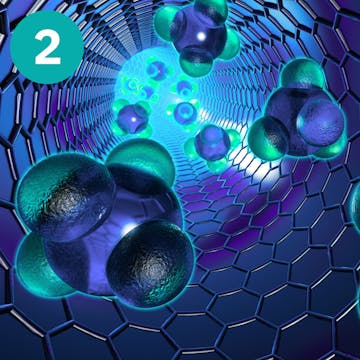

Structure of matter
atoms, molecules, nanomaterials. Part 2

A two-part course lays down an understanding of the fundamental foundations of the structure of atoms and molecules, chemical bonds, intermolecular interactions.
The course systematically reveals the relationship between the electronic structure of atoms and...
Read more
Good to know
Save this course
Activities
Career center
Materials Scientist
Chemical Engineer
Research Scientist
Professor of Chemistry
Biochemist
Pharmaceutical Scientist
Medical Physicist
Science Writer
Science Policy Analyst
Technical Writer
Patent Attorney
Middle School Science Teacher
High School Chemistry Teacher
Librarian
Elementary School Teacher
Reading list
Share
Similar courses
OpenCourser helps millions of learners each year. People visit us to learn workspace skills, ace their exams, and nurture their curiosity.
Our extensive catalog contains over 50,000 courses and twice as many books. Browse by search, by topic, or even by career interests. We'll match you to the right resources quickly.
Find this site helpful? Tell a friend about us.
We're supported by our community of learners. When you purchase or subscribe to courses and programs or purchase books, we may earn a commission from our partners.
Your purchases help us maintain our catalog and keep our servers humming without ads.
Thank you for supporting OpenCourser.

